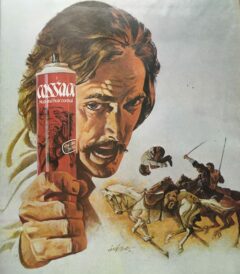Everyone of a certain age remembers and loved The Girl From Uncle but few will recall just how briefly it endured or that it was a critical disaster
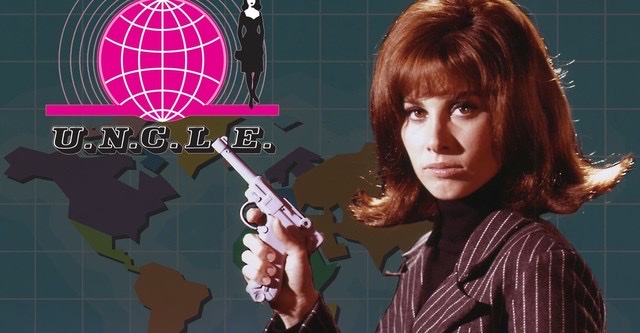
Thursday night was a great night for telly during the mid-sixties. Not only did we have Top of the Pops on at 7.00pm but straight after it was the best programme on telly at the time, bar none: The Man From UNCLE! This show was just so cool in so many ways, it was mind-blowing. From the ultra-funky Jerry Goldsmith theme music to the wonderfully secret nature of the UNCLE HQ behind the New York dry cleaners to those amazingly cute triangular UNCLE badges they used to wear to the gadgets, many gadgets, to the superb Walther P38 pistols. And that’s before you even get to the uniquely fast action edits and breathless narratives which were almost Batman-esque in their campness. And if that wasn’t enough, in the US on September 1966 The Girl From UNCLE was unleashed!
Here in the UK we had to wait until until Thursday October 27 1966 for the first TGFU episode which was The Dog Gone Affair. After this, however, every episode was shown out of sequence. This was also the case with TMFU going back to its first showing on Thursday 24 June 1965. The BBC, for some reason avoided showing any episodes that had 2 or 3 parts but why they showed the episodes out of sequence is anybody’s guess. It’s also the case that not every episode of TGFU or TMFU was shown in the UK. However, the BBC did show TGFU pilot, The Moonglow Affair, on April 28th 1966.
What many will have forgotten, including myself was that TMFU and TGFU were shown on alternate weeks right up until TGFU’s last broadcast on Thursday 9th November 1967 with The UNCLE Samurai Affair. TMFU would continue into the fourth series with a couple of breaks for Adam Adamant Lives! and Dr Kildare until its last broadcast on January 4th 1968 to be replaced with the slightly grittier and less fashionable character of Charlie Barlow in Softly, Softly.
The Man From UNCLE was a soaraway success on US telly, so much so that after the initial two series, someone from the NBC top brass had an idea that if we have The Man From UNCLE, why can’t we have The Girl From UNCLE? Double the fun (and even more importantly, ratings) and it would appeal to the ladies in the prime time audience not to mention the men, as she was unlikely to be played by Peggy Mount. Three characters were mooted by the writers: April Dancer, the eponymous Girl From UNCLE, her male sidekick Mark Slate and her boss, the already established Alexander Waverley, played by Hollywood big hitter Leo G. Carroll. These two new characters were to be introduced in a Man From UNCLE episode from the second series, The Moonglow Affair. At this point April Dancer was played by ex-Miss America Mary Ann Mobley, emphasising April Dancer’s glamorous character as well as obviously appealing to the red-blooded male audience of TMFU. Her assistant Mark Slate was played by the well-known and rather lugubrious Norman Fell. This Mark Slate was much older than the eventual Mark Slate, played by Noel Harrison. Fell was ostensibly young UNCLE agent April Dancer’s minder and mentor. Fell had been in many films and TV series and is maybe best remembered as Benjamin Braddock’s miserable and suspicious landlord in the sleazy boarding house he resides at when stalking Elaine Robinson in The Graduate.
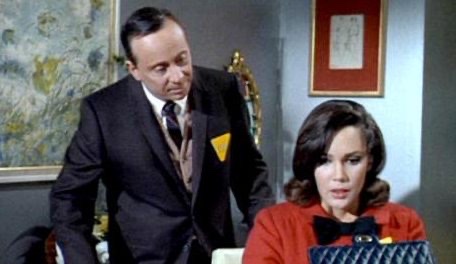
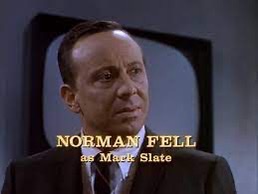
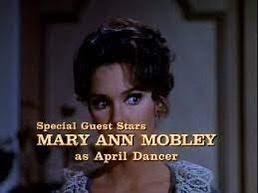
The Girl From Uncle Mark 1
This pilot TGFU episode seemed successful enough to spawn a series of its own but when it came to casting April Dancer and Mark Slate, Mobley and Fell were out. Producers wanted the two main characters to be hip, sexy and there to be an implied attraction, a bit like Steed and Emma Peel (See The Avengers: Quirk, Strangeness and Charm (and bags of style)). They wanted a female star who would look great in the Carnaby Street fashions of the time and with her co-star and sidekick being British, it resonated with The Beatles and The British Invasion of the mid-60s. A young Stefanie Powers was cast as the eponymous heroine and, son of Rex Harrison, Noel Harrison as Mark Slate while Leo G. Carroll made the crossover as UNCLE boss Alexander Waverley.
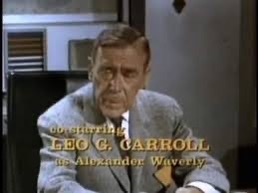
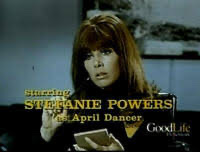
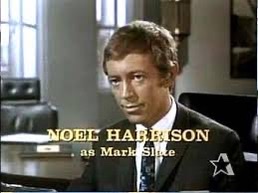
The Girl From Uncle Mark II
Way back in 1962 Ian Fleming was recruited to work with producer Norman Felton to develop an American spy TV series along the lines of James Bond. Little of Fleming’s ideas survived as he withdrew from the project a year later under pressure from Bond producer Harry Saltzman. What did survive was the character of Napoleon Solo (a character with the same name had appeared in 1964’s Goldfinger) and the name of April Dancer, who had originally been an UNCLE operative in Fleming’s original vision for the series. A year after, Fleming died at the age of 56 in 1964, the name was pulled from the notes still held by Felton and The Girl From UNCLE was born.
When TGFU was first mooted many involved in the series, including David McCallum, wondered what the point of this was. Would it just be TMFU plots and storylines but with a girl instead of two guys? Was it a groundbreaking early manifestation of a feminist discourse? Did the great viewing public love the series so much they’d be salivating at the thought of another weekly episode of UNCLE? The original series had been a runaway success and was the most watched TV show in America at the time so producers must have just seen the dollar signs in their eyes and the ratings exploding through the roof. If only they’d listened to Ilya Kuryakin. That said, there was much to like about TGFU and, without doubt, it was an iconic TV series of the 60s, whatever its aesthetic shortcomings.
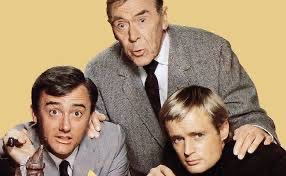
The producers eventually settled on a young, glamorous multi-lingual actress known as Stefanie Powers. She had already appeared in a few films such McLintock with Big John Wayne and the schlocky Die! Die! My Darling with an ageing Tallulah Bankhead and TV series like Bonanza. At only 23 and possessing sultry looks, she was exactly what the producers were looking for. It would seem that this stellar role would define the rest of her acting life but, sadly, it wasn’t to be. She claimed the failure of TGFU meant she struggled for work for the next two years and she had a point. The way the role of April Dancer panned out in TGFU hardly allowed her to stretch her acting abilities, in fact she was merely asked to just to look good. Three years after TGFU she would be cast in a series starring Robert Wagner, It Takes A Thief, based loosely on Hitchcock’s To Catch A Thief. A life long friendship would ensue between the two actors culminating in what became Powers‘ defining role with Wagner, the formulaic Hart To Hart which ran for five years and 111 episodes.
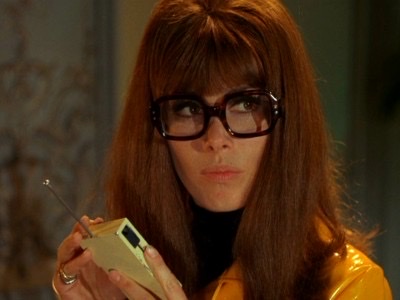
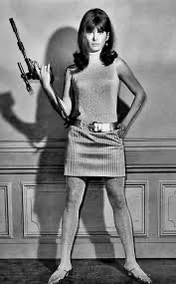
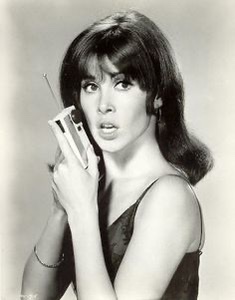
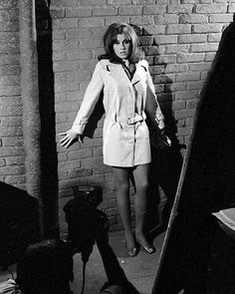
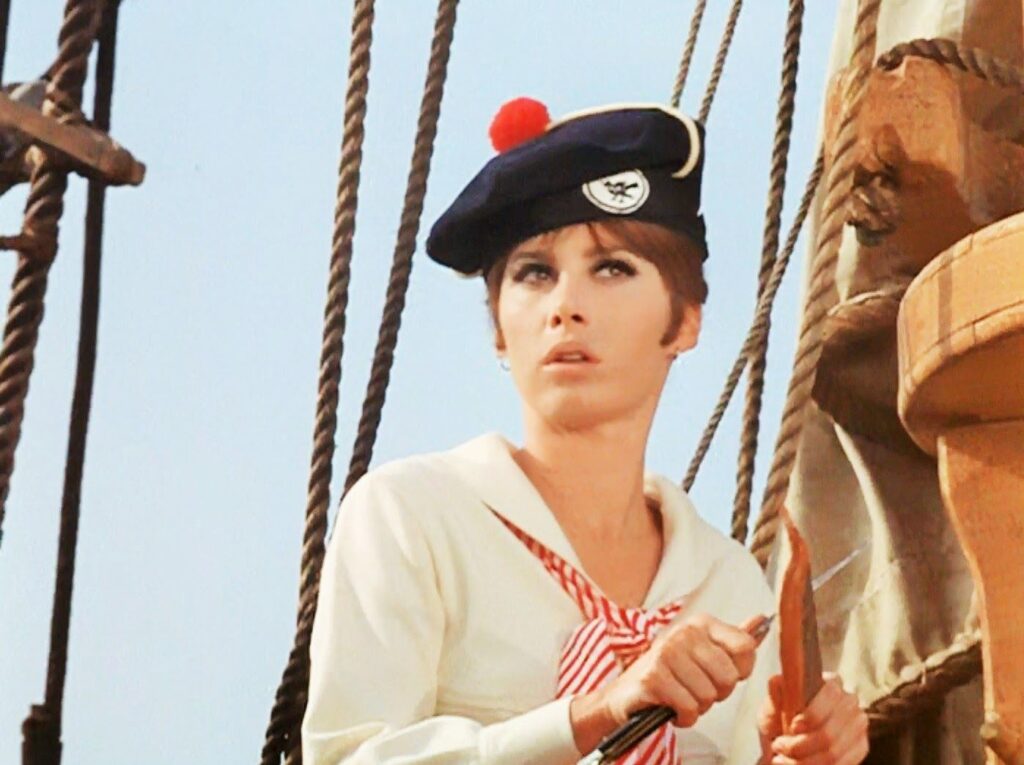
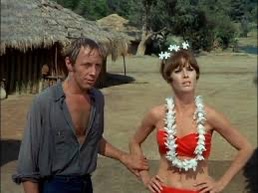
Powers’ rather prosaic but lucrative post-TGFU career makes Noel Harrison’s seem positively exotic. Son of British acting royalty Rex Harrison, he appeared in minor roles in a number early sixties British TV series such as No Hiding Place and low budget films like The Amorous Adventures of Moll Flanders (as Second Mohock, whatever that is) probably because he was Rex Harrison’s son. He was also a champion skier and represented GB at the Winter Olympics of 1952 and 1956. At the same time he had a relatively successful career as a night club singer and through his famous father, had a direct line to the US, and somehow landed a gig on America’s biggest chat show, The Johnny Carson Show. He was spotted on this by the wife of an UNCLE producer and brought in for audition. His trendy good looks and Britishness, the British Invasion and Beatlemania were in full cry at the time, ensured he was offered the role.
His most memorable achievement, however, was his version of Windmills Of Your Mind, which was the theme tune to the hugely successful McQueen/ Dunaway classic of 1968, The Thomas Crown Affair. With the music written by legendary French composer Michel LeGrande the song was originally offered to Andy Williams who, for some odd reason, turned it down and was then, somehow (a word that keeps cropping up), offered to Harrison. He would eventually win an Oscar for Best Song. The single reached a heady No. 8 in the UK charts of that year and he performed the song on Top Of The Pops on March 27 1968 followed the next week by The Rolf Harris Show. The 1999 remake of this film featured a version of the song by Sting.
His acting career would continue sporadically for the next few years and he appeared in American TV staples such as It Takes A Thief (’68), the wonderful Mission Impossible (’70), Ironside (’72) and joined up with his old mucker Stefanie Powers in an episode of Hart To Hart in 1981. Obviously, like Power, he also had spots in the Love American Style and The Love Boat, programmes that seemed only created to offer employment to actors who were down on their luck at the time. The British equivalents, as we all know, were The Bill and Casualty.
He grew disillusioned with the Hollywood scene during the late 70s and retired to Nova Scotia and eventually re-settled in Devon, England where he sadly died in 2013. You have to say though, that was quite a life he had.
The third member of TGFU triumvirate was Hollywood big hitter, character actor supreme Leo G. Carroll. Already established as Mr Waverley in TMFU, Carroll reprised the same role in TGFU, which must have been a nice little earner for him.
Carroll had moved to the US in the early 1930s and stayed for the rest of his life. He appeared in six Hitchcock films, beaten only by Clare Greet (7 very early films) and, of course, Hitch himself, most of them classics such as Rebecca, Spellbound, Strangers On A Train and North By Northwest. He established himself as a TV actor also in the long running 50s ghostly series Topper before taking the role of Alexander Waverley in 1964.
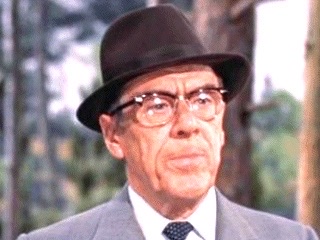
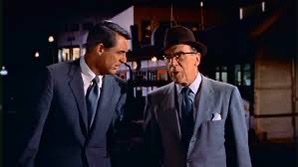
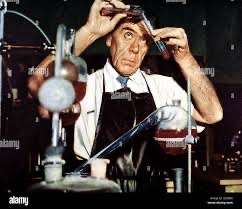
Carroll also has two interesting claims to fame, facts loved so much here at Genxculture. He is mentioned in the first song of The Rocky Horror Show, Science Fiction/ Double Feature and he appeared in the first two episodes of Rowan And Martin’s Laugh In in 1968. The show which, incidentally, replaced The Man From UNCLE on Fridays on NBC.
NBC gave TGFU the prime time 7.30-8.30 Tuesday slot and the first episode on September 6 1966 was up against some tough opposition in gritty Second World War series Combat and the Africa-set, feel-good animal stories of Daktari. Could April Dancer take on the jungle might of Clarence, The Cross-Eyed Lion? Time would tell…
The first reviews of TGFU were generally negative.
..The Man From Uncle in high heels…
…sniffed the Chicago SUN-Times. While the New York World Journal Tribune gave it a right pannin’ describing it as…
..violently sadistic and altogether repellent..
..which seems a tad rich.
The series’ big budget did attract a host of impressive guest stars such as:
- Jack Cassidy, father of David and so impressive in two episodes of the brilliant Columbo, including the pilot episode directed by a young up and coming director called Steven Spielberg.
- Bernard Fox, the Welsh go-to actor based in the US when a bumbling British toff was required (See Herman’s Hermits Were HUGE during the 60s. Why?).
- Peggy Lee, legendary sassy singer and actress
- Ed Asner who would shortly go on to make a huge name for himself in the mega-successful Mary Tyler-Moore Show and subsequently his own hugely successsful spin-off, Lou Grant.
- Victor Buono, riding high on the success of his appearances as Special Guest Villain King Tut in the America’s most successful show of the period, Batman.
One significant guest villain from TGFU episode The Mother Muffin Affair was the legendary Boris Karloff who was only too happy to camp it up in drag in a London-set caper which also involved Napoleon Solo (Robert Vaughn) in a crossover appearance. The involvement of the be-dragged Karloff and Buono seemed to emphasise that TGFU was attempting to be as camp as Batman which turned out to be a big mistake. The plots tended to be formulaic and involved April going undercover, being found out, being tied up and imprisoned in a variety of ways and eventually being rescued by Mark Slate. Rarely did April Dancer apprehend the villains single-handedly so proto-feminist crime fighter she was not, unlike the likes of her contemporary Emma Peel of The Avengers (See The Avengers: Quirk, Strangeness and Charm (and bags of style)). And that, with regards to TGFU, was pretty much that. It was cancelled after 29 very similar episodes in April 1967.
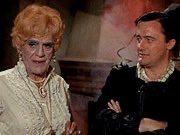
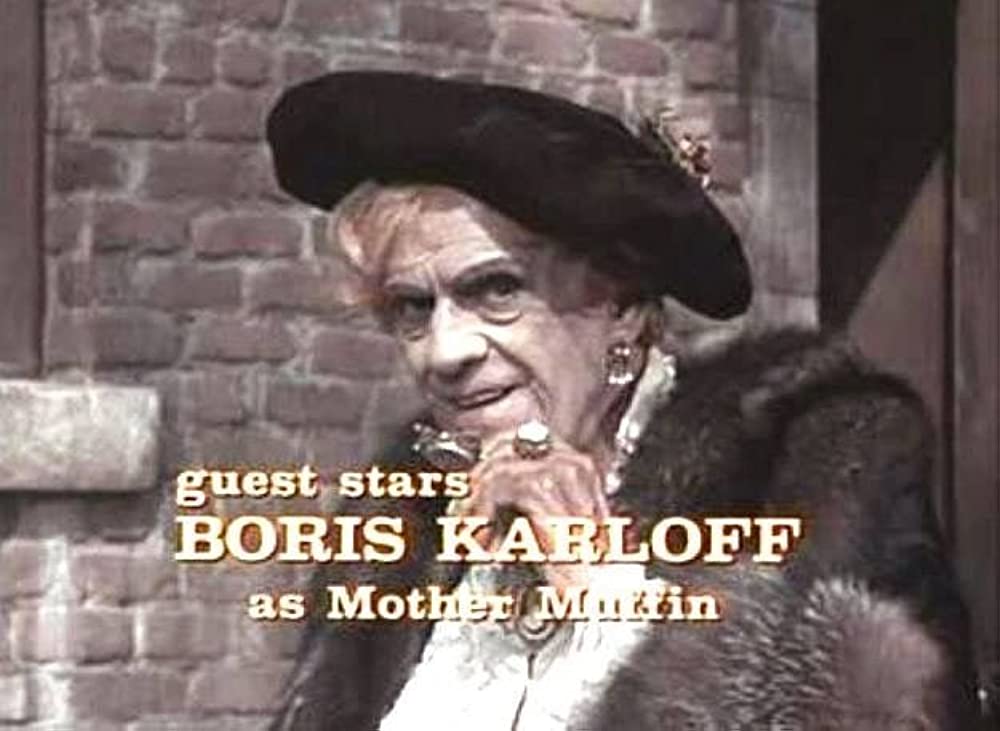
Both TMFU and TGFU generated hugely successful merchandise. Guns, model cars, comic strips, books, walkie-talkies, badges. You name it, it could be purchased. TMFU guns were particularly sought after in my primary school though I sadly never had one. Although all I needed to be Napoleon Solo was a pen with a lid which I’d remove and speak into the end of it, ‘Open Channel D.’

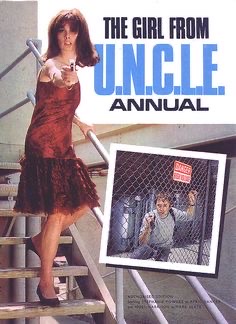
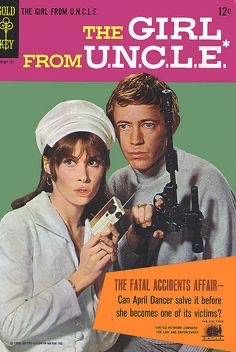
My abiding memory of TGFU was April Dancer wearing a transparent plastic raincoat. Whether she did wear such an item is uncertain, however, her clothing budget for each episode was, for the time, an eyewatering $1000, which suggests that maybe TGFU wasn’t meant to be taken as seriously as TMFU. Her costume changes were so regular that to remember only one costume from 1966 is possible though unlikely. The main criticism of TGFU was that it was a comedy version of TMFU, that where TMFU was serious, TGFU was ‘camp’ and knowingly comedic. It should be remembered, however, that both series were influenced by the phenomenon of the time that was Batman (See Batman: A 60s Sitcom Phenomenon) and series 3 of TMFU was also felt to be too camp and didn’t go down well with the many millions of fans, so a return to the more serious storylines in series 4 was necessary to ensure the continuation of the series. Unfortunately it was too little, too late and TMFU was cancelled in January 1968. TMFU did, however, spawn 7 full length feature films and seeing those as a sixties schoolboy was particularly exciting as it was the only opportunity to see this monumental series in living colour!
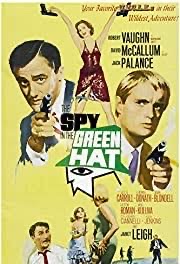
That said, although I struggled to remember too many details of any of TGFU episodes, I loved, and still love, the vibe of the show, the look of it, I can still feel the excitement of its slightly rearranged opening titles and music and as representative of the sixties sensibility, it had it in spades. Yes, we’ve become more sophisticated in our expectations of spy and thriller series but for us of a certain age TGFU was one of the biggest TV appointments of the week. Maybe lacking in acting experience and finding it difficult to make the most of a criminally underwritten character, Stefanie Powers was perfect for April Dancer and she can proudly take her place in the museum of 60s icons. April Dancer, we salute you!
